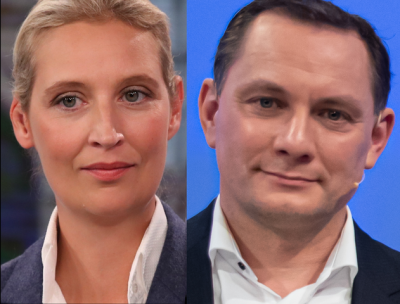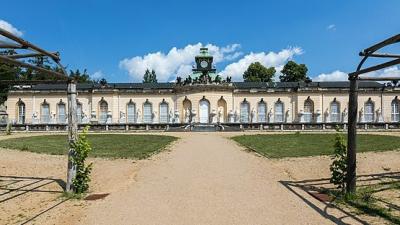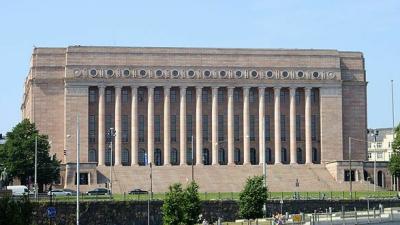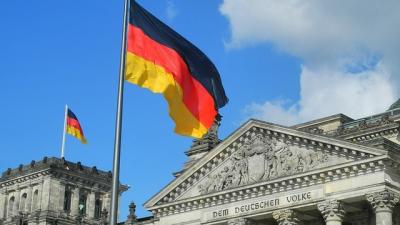Things are actually going well for the AfD. The right-wing nationalist party is soaring in the polls and is potentially the third strongest party in the country. It has had to do little to achieve this. The governing coalition of Social Democrats, Greens and Liberals has showed a desolate picture for months. The Liberals are alienating their supporters by following the leftist-green agenda; the Social Democrats are imposing unacceptable costs on their own clientele with ever-increasing burdens; and the Greens are embroiled in a scandal with the Graichen affair.
The Christian Democrats, as the largest opposition party, can hardly score points with their pale leader Friedrich Merz, because he far too often gives the impression of preferring to offer himself as a coalition partner instead of pursuing an independent opposition policy. When the federal government wants to replace oil and gas heating with a "heat turnaround" in favour of heat pumps, there is no protest from the CDU/CSU, only a counter-programme to soften the reform – somewhat. Moreover, after 16 years in power, the CDU/CSU has for the time being gambled away its credibility in the areas of security, migration and the economy.
In the past, internal quarrels within the party divulged with relish by the media ensured that the AfD remained the talk of the town. After a certain period of silence however, there are more and more articles asking about the reasons for the high polls. In view of inflation, price increases and climate laws, the answer does not require a university degree. For a real change of policy, only the post-communist Left Party offers itself as an alternative to the “Alternative” for the reasons mentioned above; whereby its climate policy is close to the principles of the federal government. Although its Russophile stance on the Ukraine war is in contrast to the governing coalition, the AfD also offers this programme.
In some polls, the AfD has now reached 18 per cent. In the areas of the former GDR, it could become the strongest force in a new election. In federal states such as Saxony and Thuringia, it would get 32 and 30 per cent respectively. These are seismic shifts. The party is gaining such strength that it can no longer be ignored by the public.
But despite this surge, the party has some long-term problems whose solution remains unlikely - and therefore excludes it from power for an unknown period of time. The isolation within the party political landscape is well known: Neither the CDU/CSU nor the FDP show any willingness to form a coalition. The FDP in particular is shackled by its responsibilities at the federal level. The Christian Democrats have not only categorically ruled out cooperation, but are probably still secretly hoping to "dry up" the AfD over time. The fact that with the advent of a right-wing party with at least 10 per cent strength, it is only at the mercy of left-wing coalition partners that the CDU will ever be able to govern is something it consciously accepts.
Accordingly, there is a need for action on the part of the Liberals and Christian Democrats as far as their relationship to the AfD is concerned, if they do not want to continue to link their party programme to green and red ideologies in the future and thus dilute their own election programme - which will inevitably lead to their further relegation. But first and foremost, the ball is in the AfD's court. For the AfD has meanwhile developed into a party of total opposition. It does not launch its own actions, but always reacts in confrontation to what other parties propose. To date, any serious ideological underpinning is lacking: is the AfD a liberal, a conservative, a populist or a radical right-wing party?
Such vagueness was evident, for example, in an interview with AfD leader Tino Chrupalla, who declared the question of abortion a “private matter”; an incredible answer for other right-wing parties in Europe. It shows the purely populist actions of the AfD, which primarily serves a secularised, patriotic/nationalist and socialist-minded electorate in the east of the country. It is still speculating that the disappointed voters will bite the bullet and vote for it anyway because there is no alternative; with this speculation, however, it has long since arrived at the same wishful thinking as the CDU, which imposed ever greater concessions on its voters because there too was no alternative.
In terms of content, many West German voters could find something to like about the AfD. But in the West, more than in the East, it is the tone that makes the music. West Germans may want AfD ideas, but they don't want them delivered in a clumsy tone that makes them suspect of being in the populist camp. Moreover, they are able to see through the emptiness of content behind the façade. In addition, there is a striking point that drives East German voters in the direction of the AfD, while West German voters recoil: the AfD's stance on the Ukraine war, which might be considered as “neutral” only in the kindest case.
Here, too, some of Chrupalla's statements are striking. For example, in an interview with Götz Kubitschek's "Sezession", the AfD leader defended himself by saying that he had met with the Russian ambassador on the anniversary of the German surrender in 1945. He wanted to promote understanding and reconciliation between Russia and Germany. Referring to the Bismarck era, he explained that Russia had been a "guarantor of a conservative order" in Europe. And further: "The worse the relations became, the worse it was for Europe. We must build on these good relations."
These are not realpolitik statements, but fairy tale lessons projected from the past to the present. The peoples of Central Eastern Europe benefited hardly at all from the good Russian-German relations, the effects of which do not need to be elaborated here. Moreover, Russia pursued a conservative policy only in its own interests: the preservation of the Polish-Lithuanian Union was not a concern of Saint Petersburg. On the other hand, Russia took advantage of the noticeable weakness of the Ottoman Empire and thus provoked several wars at once. Now, the liberation of Bulgaria from the Turks may certainly be counted among the more positive manifestations of Russian imperialism; however, it would be naïve to interpret Pan-Slavism as a striving for global order instead of a mere ideological means of expanding Russia’s power.
But it is not only in terms of foreign policy that the AfD and its leader present a remarkable picture. In terms of domestic policy too, Chrupalla suggested that the view of the past needs to be revised. "The Alternative for Germany has set out to solve the problems of the present and to shape the future of Germany," says Chrupalla. "Little by little, it is becoming apparent that this also requires politics of history. How we relate to sections of our history is something the party will have to clarify in the coming years." Does this mean that in Germany, there has been no historical policy reappraisal to learn from?
These are the kind of statements that pose a problem for West German voters because they dissolve a consensus that has grown over decades and is fundamental to West German thinking. This includes Germany's integration into NATO and its ties to the USA. The majority of Germans stand behind this consensus, even though some in the AfD may deplore it. And as long as it doubts this consensus, the AfD will remain a party on the fringe, like the Left Party. These are facts that one does not want to acknowledge within the AfD, just as one does not want to acknowledge the fact that the AfD, one way or another, is part of a pan-European conservative party family whose members are attentively observing and assessing what the German right-wing relatives are doing - for example, when Dimitrios Kisoudis, as Chrupalla's speaker, demands that German-lead “Mitteleuropa” should negotiate with Russia and adopt a contrary position to Poland, which is allegedly driving a "wedge" into the continent with its Three Seas Initiative.
The supporters of this political programme think their reveries are realpolitik. In fact, they are the exact opposite. They dream of a “Mitteleuropa” no longer exists at the latest since the demise of the Austrian Empire - the true bearer of the idea of Central Europe. Neither the Benelux states nor the Czech Republic nor Austria could ever be won over to indulge in such fantasies. The same applies to the political allies in Europe. The Lega has taken the course of the transatlantic Fratelli d'Italia, the Finnish Party is following a similar path, and the Polish position has been clear for years. Despite their wait-and-see attitude in the Ukraine war, the Hungarians, too, as down-to-earth pragmatists, are hardly to be won over for such German pipedreams. Even if the AfD were therefore to score 20 per cent in federal or even European elections - with whom would it be able to form a coalition?
Read also
No Money For Caravaggio
Many would give their eye teeth for the genuine Caravaggio that hangs in the Sanssouci Picture Gallery. It is the famous depiction of Thomas grasping the wound of the Risen Christ.
Marco Gallina
The Finnish election is a signal for European conservatives
Sanna Marin is history. This is not without irony: usually, it is the "woke" young generation that overturns monuments to great historical figures. Yet this time, with Marin, a left-wing icon only 37 years old is toppling. She was a figurehead even in the liberal camp.
Marco Gallina
Country Report: Germany, January 2023
Germany's desperate search for geopolitics
Marco Gallina
The Question of Oriental Christians is a European Question
Europe will be Christian again, or it will no longer be at all. How Christian it truly is, is also shown by how much it stands by its fellow Christians. In the case of Christianity in the Orient, the very region of origin of the religion that had made Europe what it was and what it is now - things look bleak.














Comments (0)